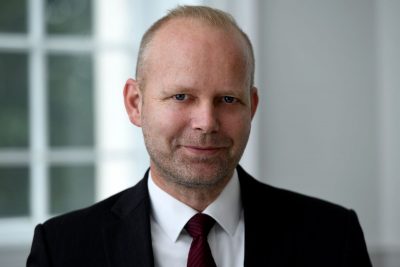The markets think Rishi should have been PM

Paul Montague-Smith
Liz Truss’s big gamble is to put clear blue water between the Conservatives and Labour. It is a big gamble, says Paul Montague-Smith, one that could fail spectacularly.
The markets have spoken. Rishi Sunak should have become Prime Minister. But politics is politics, where telling people what they don’t want to hear usually leads to losing.
The siren narrative of Liz Truss throughout the leadership contest was that the Treasury bean counters and their economic orthodoxy needed to be overturned and that tax cuts would drive growth, without stoking inflation.
The political plan was to create ‘clear blue water’ between the Conservatives and Labour. To turn the Tory party back into being a Tory party, for it was politically unsustainable for the party of low taxes to preside over the highest tax burden for 70 years and they would be hammered at the polls if nothing changed.
Politics had coalesced around the middle ground for too long ever since the fall of Thatcher – more moderate one-nationism under Major, third-way social democracy under Blair and Brown, hug a hoodie social liberalism under Cameron and Osborne, caution under May and finally big-spending levelling-up boosterism under Johnson.
Most of the Tory membership lapped up the Truss storyline.
They didn’t want to hear Rishi Sunak’s argument that tax cuts would add to inflation, raise borrowing costs and lead to a crash in voter support.
In rapidly creating clear blue water the new Prime Minister and Chancellor now look to be far offshore, at the mercy of forces they can’t control.
In overturning ‘the orthodoxy’, they have potentially severely damaged the Tories’ reputation for economic competence. Tax cuts to spur growth are Tory bread and butter.
Borrowing to fund them is not. The economic adrenaline shot has been interpreted as being at odds with the Bank of England’s duty to control inflation.
Compounded by there being no accompanying analysis by the Office for Budget Responsibility – or any narrative on how the Government would meet or even flex its fiscal rules – and then compounded further by the Chancellor doubling down and signalling more tax cuts are to come, the markets gave their verdict.
So, government borrowing costs have been rising, interest rates are expected to need to be 6% or more next year to bring inflation towards target (up from 0.25% in January) and the latest opinion poll shows Labour leading by a margin in the ballpark of Tony Blair’s before the 1997 general election.
Keir Starmer is also narrowly leading Liz Truss on who would be the best Prime Minister. No wonder the Labour leadership and the architects of New Labour, like Peter Mandelson, are so chirpy and confident at the party conference in Liverpool.
If politics is once again ‘about the economy, stupid’, the tide seems to be turning in their favour.
Their conference couldn’t have had a better backdrop, while Sir Keir’s moving of the party back towards the centre ground progresses.
Boris Johnson was a high-stakes political gambler. Liz Truss and Kwasi Kwarteng have now taken a big bet on our behalves too. Perhaps what some have dubbed the ‘Kami-Kwasi’ budget will turn out to be economically and politically on-point.
Perhaps markets will settle down, will be willing to wait for the Bank of England’s next interest setting meeting and the Chancellor’s Medium Term Fiscal Plan in November.
So far, though, they appear nervous and unconvinced the gamble will pay off.
